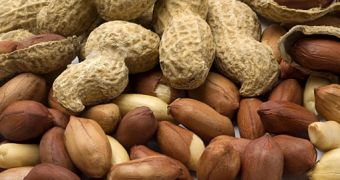Last week, the Seattle Mariners' Safeco Field witnessed a showdown between the aforementioned team and the Boston Red Sox. Regardless of which team got to win this game, the fact remains that environmental protection also scored a few points.
By this, we mean that the first 10,000 people who made it to the stadium were greeted by environmentalists who presented them with free packets of peanuts all wrapped up in compostable packaging.
Apparently, the decision to provide baseball fans with these environmentally-friendly snacks stemmed from the fact that, for quite some time now, the Seattle Mariners have been trying to cut down on their ecological footprint by diverting as much as 85% of their waste from landfill.
Business Green informs us that the company responsible for providing the compostable packaging distributed during the Seattle Mariners vs. Boston Red Sox game is BASF, whose headquarters is in Germany.
According to company representatives, the packaging options this company put on the market are quite efficient when it comes to helping various businesses and organizations meet their green-oriented standards, especially as far as waste is concerned.
Scott Jenkins, vice president of operations for the Seattle Mariners, explained how, “All of our service ware is already compostable, but snack food bags have been one of the biggest barriers preventing us from getting to our goal. Flexible packaging made with BASF biopolymers could represent the holy grail of greening for our waste stream.”
On the other hand, Kimberley Schiltz, presently employed as market development manager at BASF, made a case of how the packaging alternatives brought forth by said company translate into environmentally-friendly snacks, which can be kept in stores until purchase without their quality being affected, but which do not pollute the natural world once consumers are done eating them.
In her own words, “It means that popular snack foods can be brought to market in compostable packaging that delivers needed shelf-life at a competitive price point, with a more sustainable 'end-of-life' solution than with conventional packaging materials.”

 14 DAY TRIAL //
14 DAY TRIAL //